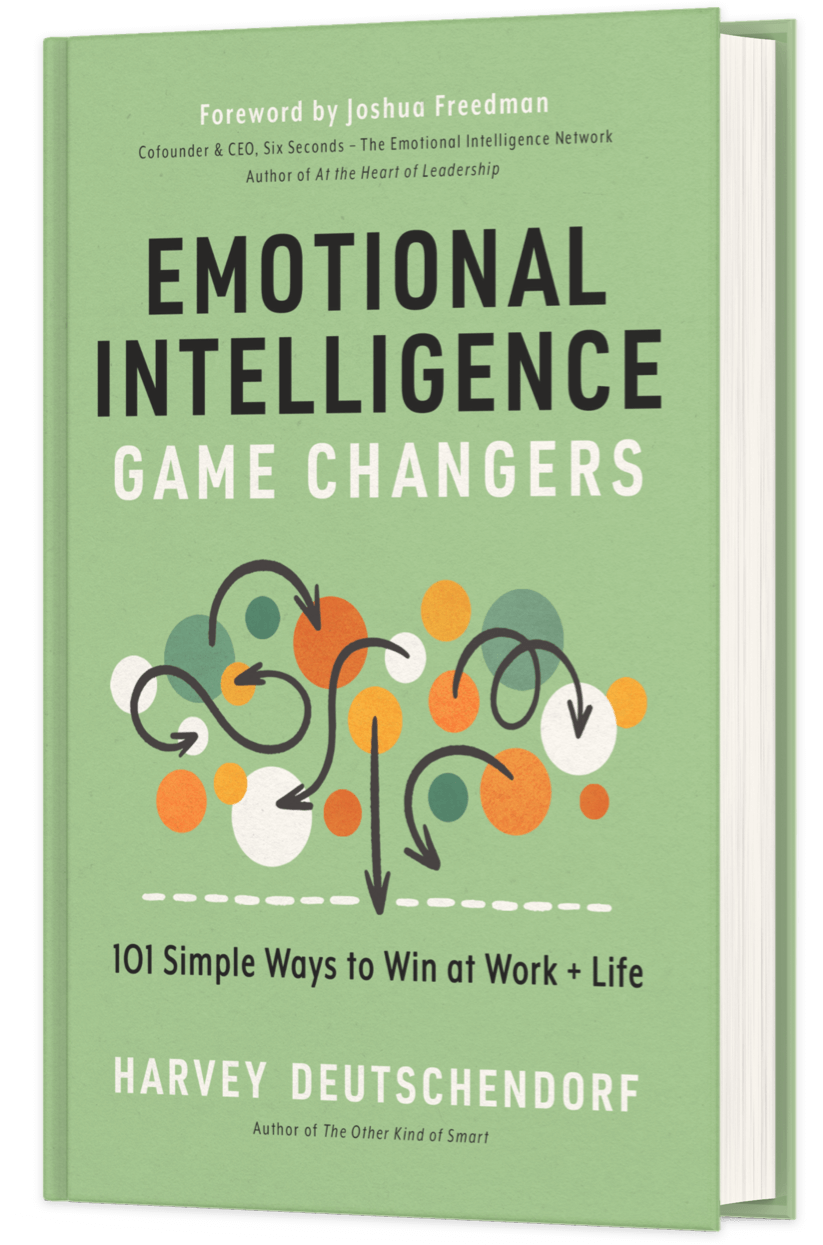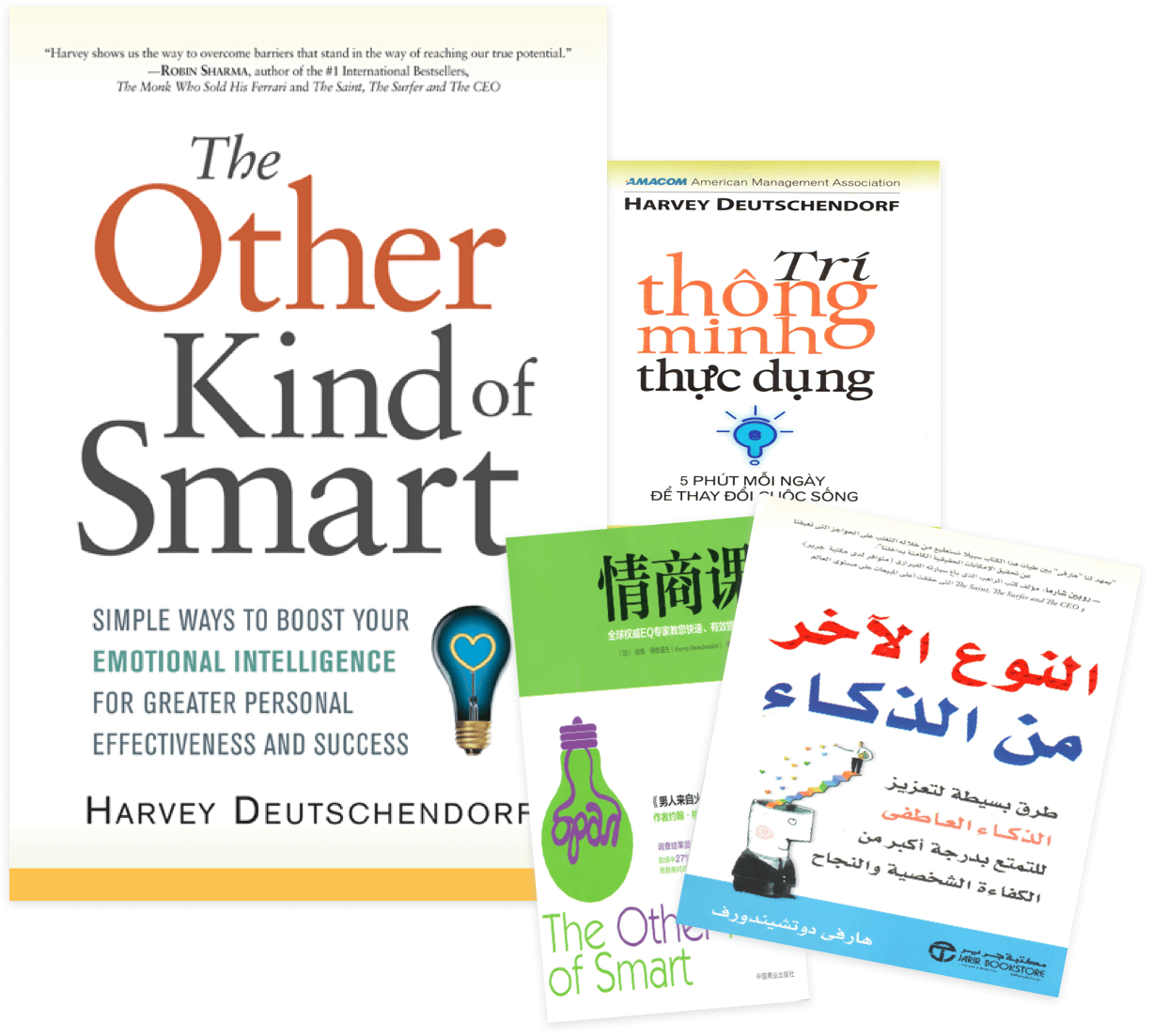
Emotional Intelligence
Emotional intelligence is increasingly recognized as one of the most valuable skills a leader can possess. In Emotional Intelligence Game Changers, leading emotional intelligence expert Harvey Deutschendorf teaches readers how to leverage this skill to achieve success in every part of life. Whether battling procrastination or a toxic co-worker, strong emotional intelligence is an important tool that can drastically change the outcome of any situation. Emotional Intelligence Game Changers: 101 Simple Ways to Win at Work and Life offers actionable solutions to a wide variety of problems that one might face in their everyday life.
If you breathe, think, have relationships, and know winning in life is all about learning and improving, read EI Game Changers to get the rules of the game.
Harvey Deutschendorf has had a life-long passion for helping others bet on themselves by developing their emotional intelligence. This is a ‘Game Changer’ that can help readers and practitioners achieve career, personal and corporate success.
Harvey is the embodiment of emotional intelligence. His ability to connect, communicate and collaborate is aspirational, as is his knack for making emotional intelligence concepts easily understood.
With the world starved for content related to emotional intelligence, Harvey Deutschendorf has cooked up a feast, again. If you want to be more emotionally intelligent devour these tips and practice them every day. Thank you, Harvey, for doing your part to make the world a better place!
If anyone has a pulse on the backbone of happier and healthier lives—indeed, the core rationale for being emotionally intelligent—it is Harvey Deutschendorf. Emotional Intelligent Game Changers is as practical a book about emotional intelligence as you’ll ever read.

The Other Kind of Smart
Emotional intelligence (EI) coach Harvey Deutschendorf combines his proven techniques with engaging principles of storytelling and fun exercises to show you how you can apply the principles of EI on the job to achieve greater success. Filled with real-life profiles of people who faced emotional intelligence dilemmas and easy-to-implement solutions, Other Kind of Smart offers tools that will bring results in as little as five minutes a day
An easy-to-read, interesting book that uses everyday stories and simple exercises to show us how to make the most of emotional intelligence in our workplaces and homes.
Click Here to see the video of Jack Canfield (Chicken Soup for the Soul author) interviewing Harvey!
I just finished reading your book, The Other Kind of Smart, and I would like to thank you for sharing your knowledge in such a beautiful and simple way. You described really hard topics in an absolutely comprehensible way even for people who are not of 'English mother tongue'. And now let's start with the most difficult part: practice... and this is just up to me.



